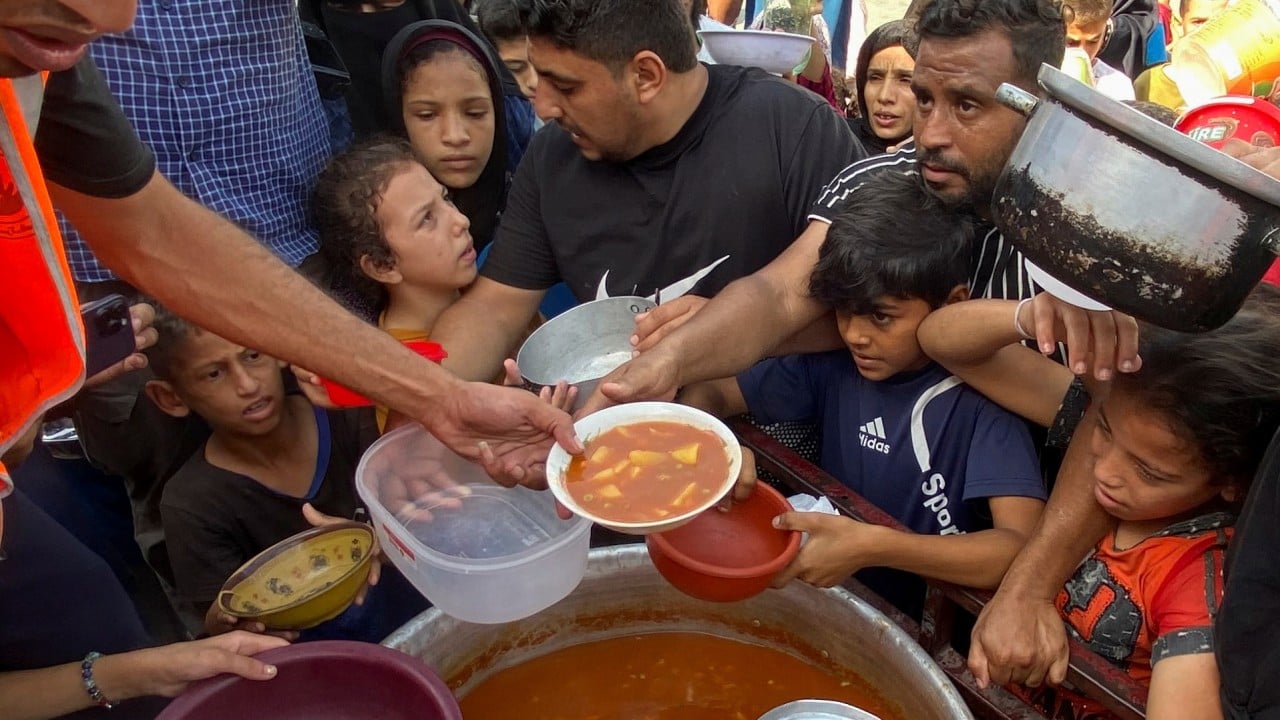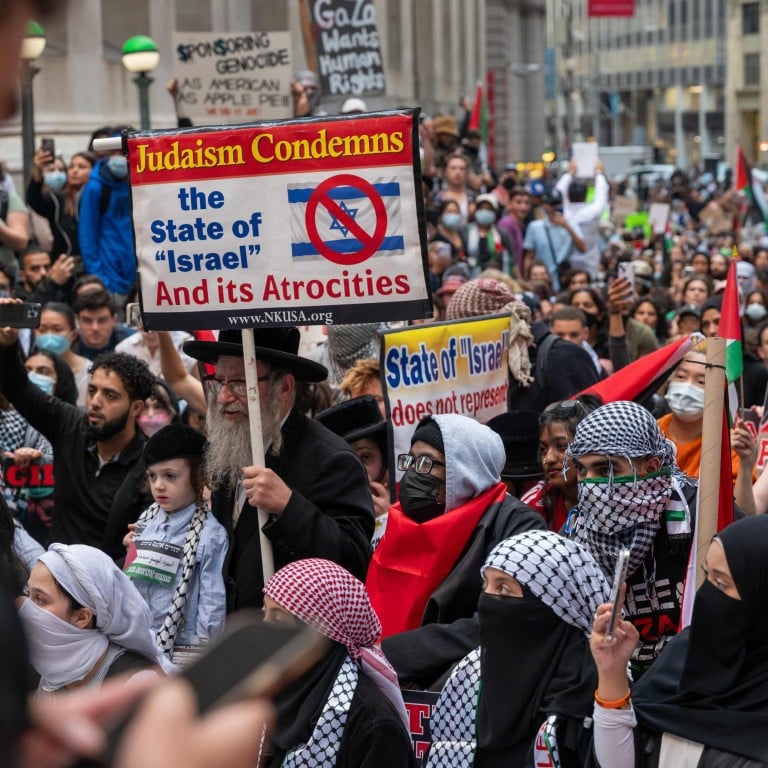
Torn apart: how the Israel-Gaza war is dividing Western societies with ‘toxic, weaponised’ narratives
- Attempts to stifle anti-Israel dissent are creating a polarised environment along racial, religious and generational lines, analysts warn
- Marginalisation of Muslims is building up a sentiment of ‘Muslim lives don’t matter’ and could also fuel radicalisation and hate crimes against Jews
Governments, political parties and media platforms in major Western democracies, which back Israel’s right to defend itself against Hamas and other Iran-allied militant groups, have equated sympathy for Palestinians – including calls for a ceasefire in Gaza – with support for these designated terrorist groups.

Political analysts have warned that right-wing European governments are dividing their societies along racial, religious and generational lines, as sports stars, Hollywood celebrities, journalists, academics and students expressing pro-Palestinian opinions have been reportedly called anti-Semites, and faced cancel-culture campaigns that forced many to backtrack and issue apologies.
“It creates a polarised environment which becomes very toxic and thereby we are importing the same toxic, weaponised narratives from the conflict in Gaza … and Israel, and importing them into Western society,” said Andreas Krieg, an associate professor of defence studies at King’s College London. “That is extremely problematic because you’re creating conflict within your own society.”
The war of words has been most visible in the footballing world, where players including French-Algerian star Karim Benzema have been shunned and accused of terrorist links by right-wing ministers and the media in France and Germany for sharing pro-Palestinian posts on social media.
“To me, it has shown the anti-Palestinian bias of sections of European elites,” said Francesco Belcastro, senior international-relations lecturer in the business, law and social sciences college at the University of Derby in England.
“This is important because we often hear the story of ‘European neutrality’ often compared to US’ support of Israel, but the crisis has shown that this is not necessarily true.”
Simon Chadwick, a professor of sport and geopolitical economy at SKEMA Business School in Paris, said the perceived indifference of Western sports clubs, leagues and governing bodies to the crisis meant they frequently found themselves “caught by surprise and holding contradictory positions, leading to suboptimal decision-making”.
“Not enough attention has been paid to what has been happening in the Middle East – unless, of course, it involves big money being invested in sport by the likes of Qatar and Saudi Arabia,” Chadwick said.
“Certainly, among Western sport organisations, most of them do not have the internal expertise or competence to be able to make informed and appropriate decisions.”

Hollywood, academia, tech giants and newsrooms have also been caught in the crossfire.
Celebrity talent agent Maha Dakhil – whose clients include Anne Hathaway, Tom Cruise and Madonna – stepped down on Sunday last week from her leadership role at the Creative Artists Agency in California, after coming under fire for criticising the West’s denial of “Israel’s genocide” in Gaza.
Dakhil retained her clientele, however, after apologising “for the pain I have caused”.
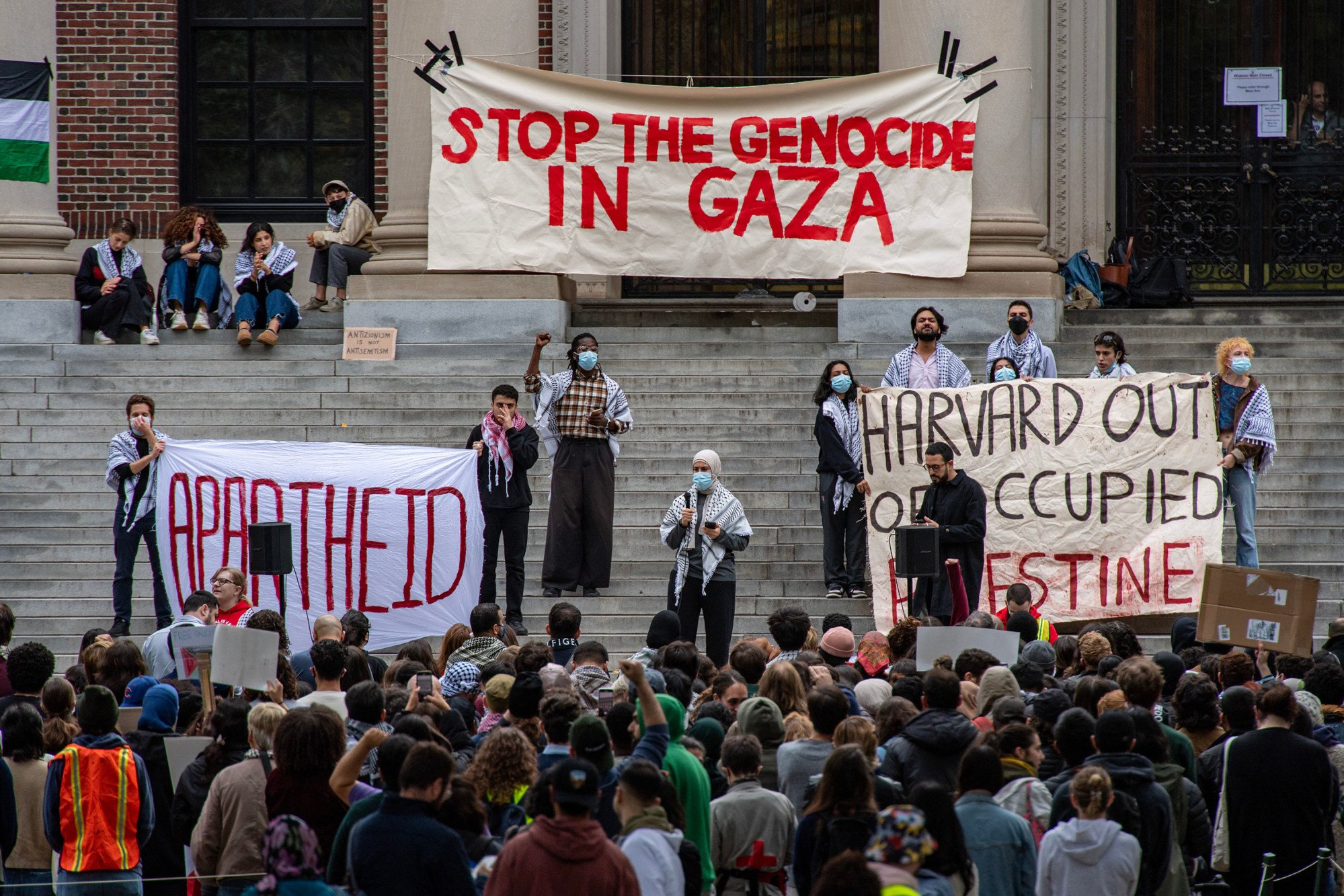
In the US, Harvard University faced an ultimatum from billionaire donors, including Apollo Global Management’s Marc Rowan and Limited Brands founder Leslie Wexner, to either take a public institutional stance in favour of Israel or lose significant amounts of funding, following anti-war protests on its campus.
Michael Eisen, a biologist at the University of California, Berkeley, was removed from his position as editor-in-chief of the research journal eLife for reposting a satirical article on the conflict. Several of his colleagues subsequently resigned in solidarity.
Reacting to Eisen’s post, Iranian-American author Arash Azizi said: “Firing people because of their anti-Israel stances … is the best gift to anti-Israel forces since it will spread such sentiments.”
How does Gaza’s Ministry of Health calculate war death toll?
Many Jewish intellectuals in the US and Europe, who like Eisen have family members in Israel but do not support Israeli government policies, have warned against denying freedom of expression and protest to pro-Palestinian voices in their millions-strong Muslim-minority communities.
They fear that the marginalisation of Muslims could fuel radicalisation and hate crimes against Jews.
In an open letter published on Wednesday, a group of Jewish artists, writers and scholars in Germany condemned the authorities for cracking down on pro-Palestinian protesters with “indiscriminate brutality”.
“Authorities have targeted immigrant and minority populations across Germany, harassing, arresting, and beating civilians, often on the flimsiest of pretexts,” they wrote.
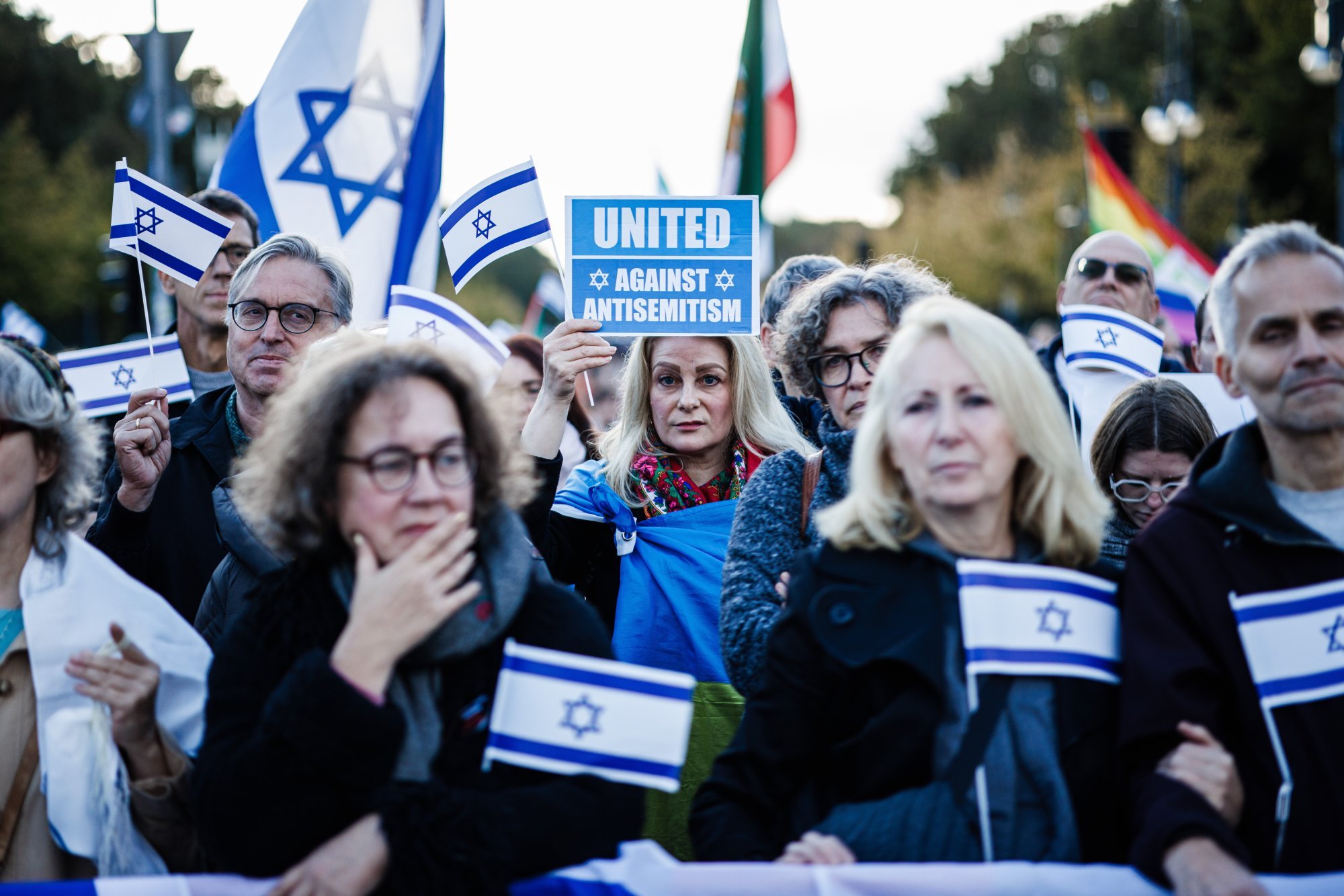
The group added Berlin’s Neukölln district, home to large Turkish and Arab communities, “is now a neighbourhood under police occupation”.
They also said armoured vans and squads of riot police patrol the streets “searching for any spontaneous showing of Palestinian support or symbols of Palestinian identity”.
There has been considerable public resistance in the West’s multicultural societies, where Muslims regularly participate in mainstream politics and have the capacity to upset election results in many swing constituencies.
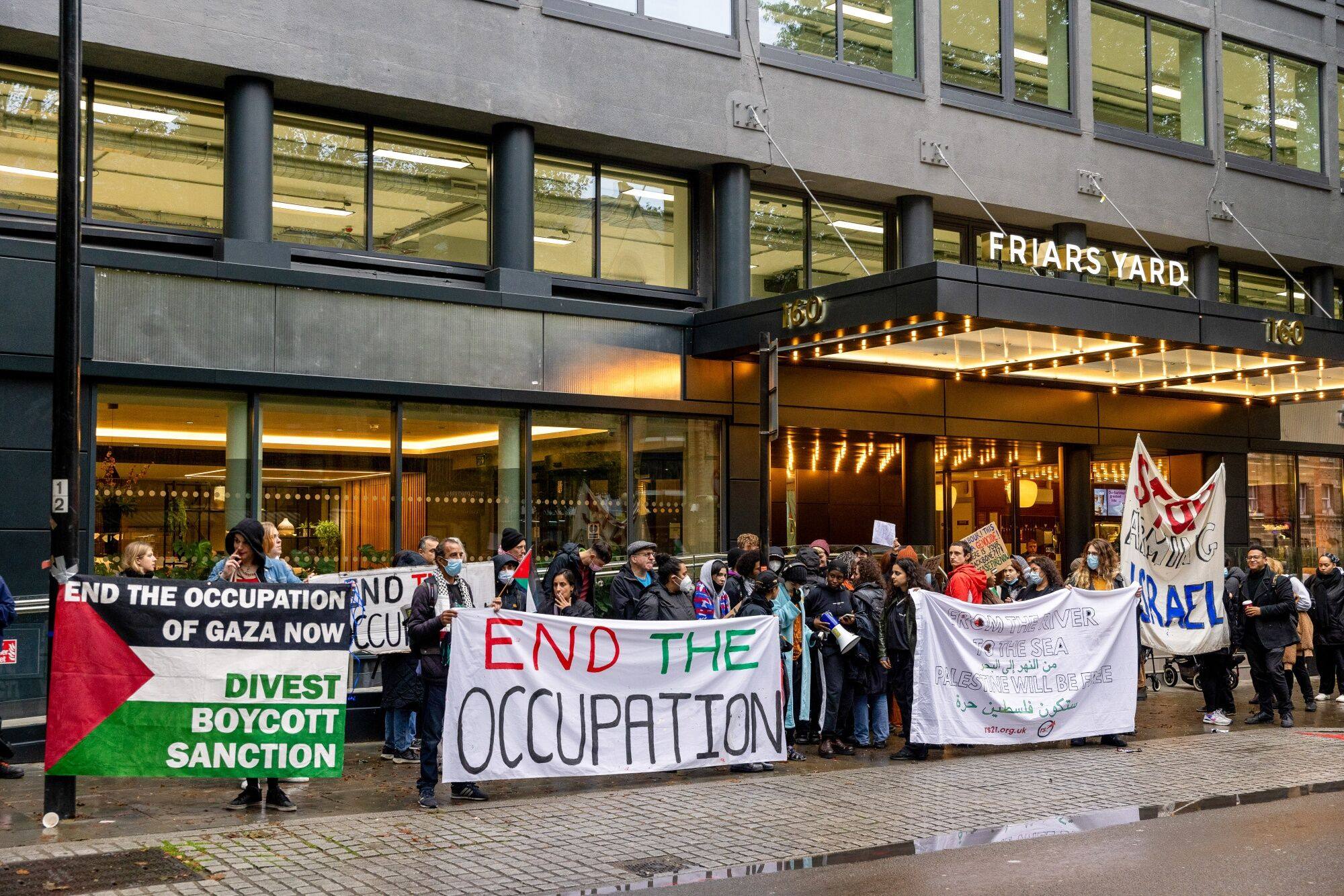
Warsi noted that the marginalisation of British Muslims, when seen alongside the refusal of the Conservatives or the opposition Labour Party to endorse calls for Israel to end its siege on Gaza and accept a humanitarian ceasefire, were building up a sentiment that indicated those in power think “Muslim lives don’t matter”.
Her words were echoed on October 21 by Jordan’s King Abdullah, widely viewed as the most pro-Western Arab national leader, at a top-level conference in Cairo on the conflict.
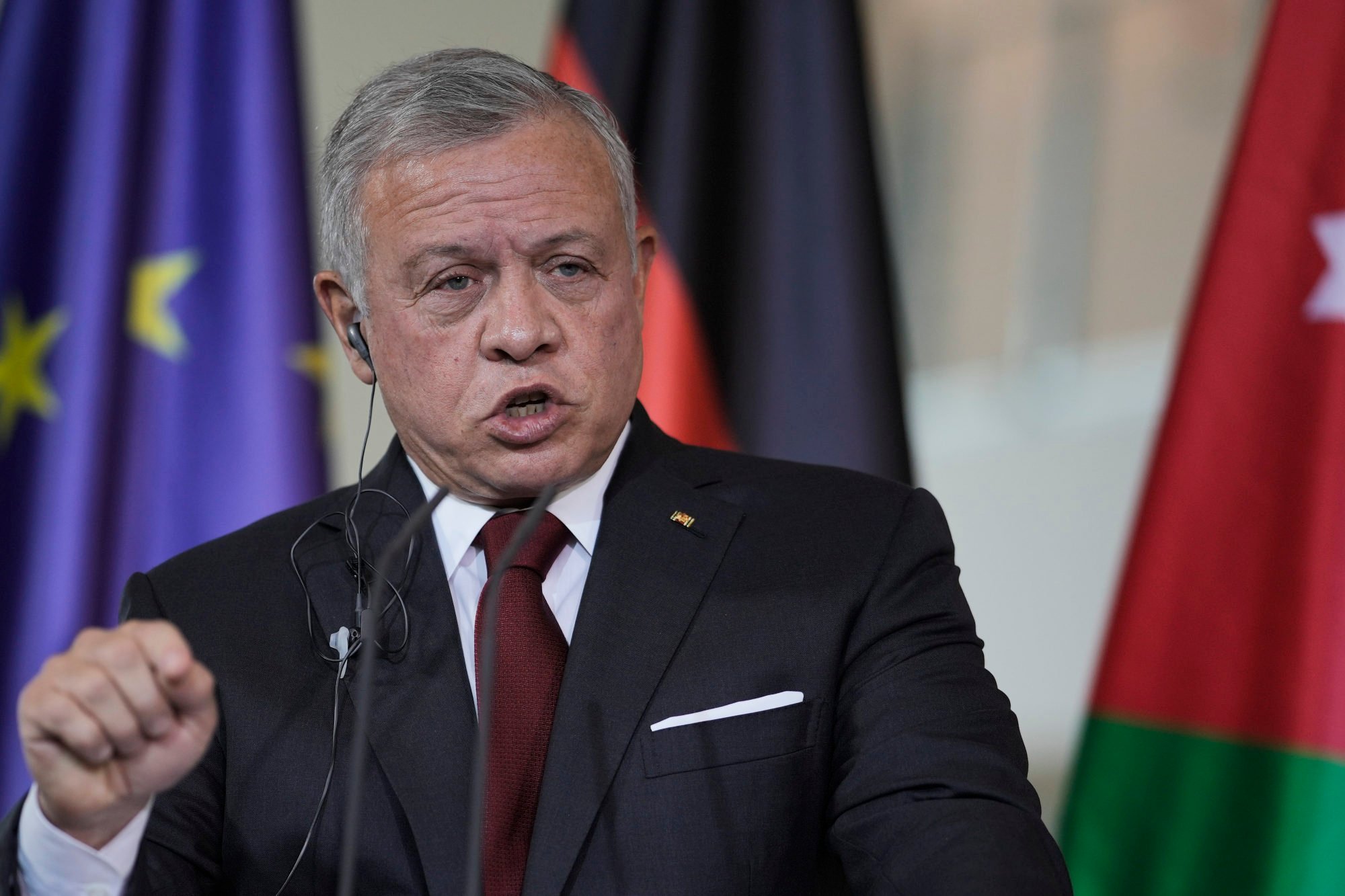
In a speech delivered in English, the king pointed out the glaring disparity in the West’s political response to military attacks on civilians and civilian infrastructure in Gaza and “another conflict” – an obvious reference to Ukraine.
He said “the message the Arab world is hearing is loud and clear”.
“Palestinian lives matter less than Israeli ones. Our lives matter less than other lives … and human rights have boundaries – they stop at borders, they stop at races, and they stop at religions,” King Abdullah said.
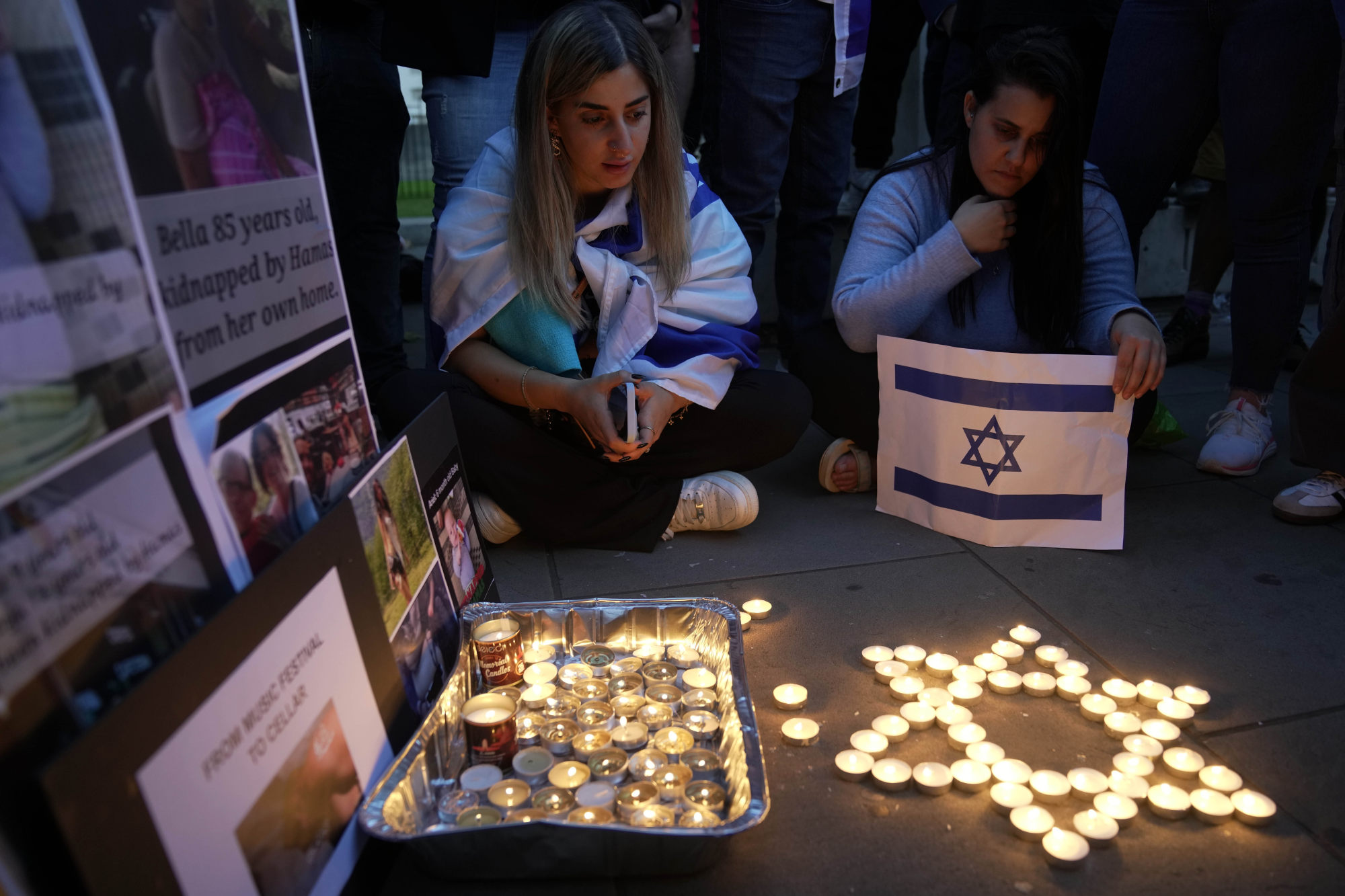
Recent public opinion polls in Britain and the US, however, found that younger people who have grown up with internet access and are more plugged in to progressive global issues are mostly opposed to Israel’s military campaign in Gaza.
Analysts say the polls show even baby boomers who have been lifelong supporters of Israel are mostly backing calls for a ceasefire in Gaza because of the appalling scenes of violence being shown in the media.
“What we see is that there’s quite a difference between what Western policymakers are looking at in the Gaza conflict and the plight of Palestinians versus how Western societies are looking at it,” said Krieg of King’s College London.
He added many Western societies were taking more of a stance based “on the principle of protecting civilian lives, where it doesn’t really matter who started the war, and doesn’t really matter if it’s Israel to blame or Hamas to blame”.


